.
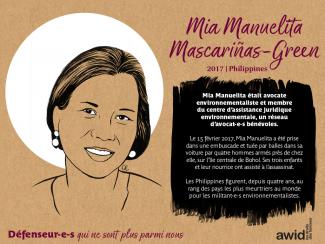
Over the past few years, a troubling new trend at the international human rights level is being observed, where discourses on ‘protecting the family’ are being employed to defend violations committed against family members, to bolster and justify impunity, and to restrict equal rights within and to family life.
The campaign to "Protect the Family" is driven by ultra-conservative efforts to impose "traditional" and patriarchal interpretations of the family, and to move rights out of the hands of family members and into the institution of ‘the family’.
Since 2014, a group of states have been operating as a bloc in human rights spaces under the name “Group of Friends of the Family”, and resolutions on “Protection of the Family” have been successfully passed every year since 2014.
This agenda has spread beyond the Human Rights Council. We have seen regressive language on “the family” being introduced at the Commission on the Status of Women, and attempts made to introduce it in negotiations on the Sustainable Development Goals.
AWID works with partners and allies to jointly resist “Protection of the Family” and other regressive agendas, and to uphold the universality of human rights.
In response to the increased influence of regressive actors in human rights spaces, AWID joined allies to form the Observatory on the Universality of Rights (OURs). OURs is a collaborative project that monitors, analyzes, and shares information on anti-rights initiatives like “Protection of the Family”.
Rights at Risk, the first OURs report, charts a map of the actors making up the global anti-rights lobby, identifies their key discourses and strategies, and the effect they are having on our human rights.
The report outlines “Protection of the Family” as an agenda that has fostered collaboration across a broad range of regressive actors at the UN. It describes it as: “a strategic framework that houses “multiple patriarchal and anti-rights positions, where the framework, in turn, aims to justify and institutionalize these positions.”

.

While fundamentalisms, fascisms and other systems of oppression shapeshift and find new tactics and strategies to consolidate power and influence, feminist movements continue to persevere and celebrate gains nationally and The rising power of anti-rights actors is not happening in a vacuum. Understanding the rise of ultra-nationalism, unchecked corporate power, growing repression, and diminishing civic space is key to contextualize the anti-rights threats we face today.

Today, considerably more than half of the world’s population is governed by far-right leaders. Against this backdrop, human rights defenders and feminists are working hard to “hold the line” and protect multilateralism and the international human rights system. They also face the risk that their engagement may bring with it violent reprisals. At the same time, these institutions are increasingly subject to private sector interests. Large businesses, particularly transnational corporations, are occupying seats at the negotiating table and leadership positions in a number of multilateral institutions, including the UN. This nexus of ultra-nationalism, closing civic space, and corporate capture is having a tremendous impact on whether human rights for all can ever be achieved.
diseñado por Ellena Ekarahendy
(Haga clic en la imagen para descargar)
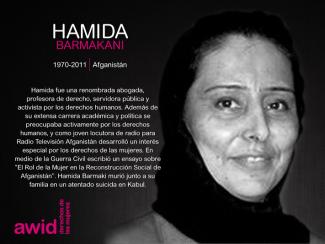
Cette année, aux côtés de militant.e.s féministes du monde entier, nous serons à la CSW68 à New York. Nous serons là pour contester les discours capitalistes et néolibéraux et les fausses solutions autour de la pauvreté, du développement et de la finance. À travers des événements en présentiel, des lives sur nos réseaux sociaux, un stand d'exposition et bien plus encore, nous visons à nous rassembler, amplifier et soutenir les voix et la participation de nos membres et allié.e.s.
Apprenez-en davantage sur notre programme cette année ci-dessous.
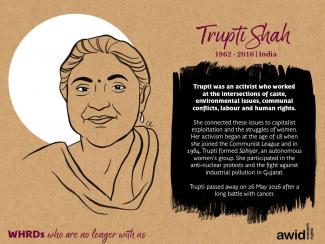
Mientras los fundamentalismos, los fascismos y otros sistemas de opresión cambian de forma y encuentran nuevas tácticas y estrategias para consolidar su poder e influencia, los movimientos feministas siguen perseverando y celebrando logros a nivel nacional y en espacios regionales e internacionales.

Por ejemplo, en 2019, se dio un paso significativo en el Consejo de Derechos Humanos, cuando la ONU reconoció por primera vez el derecho a la integridad y autonomía corporal. Varias resoluciones del Consejo sobre la discriminación contra mujeres y niñas también reconocen que la reacción está vinculada con grupos de presión regresivos, con perspectivas ideológicas o con el uso inapropiado de la cultura o la religión para oponerse a los derechos igualitarios de mujeres y niñas. También hemos visto progresos feministas en el trabajo de Procedimientos Especiales de la ONU (funcionarixs independientes), tales como enfatizar la obligación de los Estados de oponerse a las narrativas de ideología de género, denunciar el uso inapropiado por parte de los actores antiderechos de referencias a la «cultura», y enfatizar que las creencias religiosas no pueden ser utilizadas como justificación de la violencia o la discriminación.
Peut-être savez-vous déjà que l’AWID fête ses 40 ans en 2022. Mais saviez-vous que nous avons retenu pour thèmes « Rassembler, semer et perturber » ? Pour célébrer cette occasion comme il se doit, nous avons invité des membres, des partenaires et du personnel de l’AWID à écrire leur propre « lettre d’amour aux mouvements féministes ». Ensemble, nous avons créé une constellation de mouvements féministes. Restez près de nous alors que nous poursuivons notre chemin, pour rassembler, semer et perturber !
Une remarque sur notre collection de lettres d'amour :
Toutes ces lettres ont été écrites par des activistes qui font part de leurs expériences diverses au sein des mouvements féministes. Certaines peuvent inclure du contenu difficile ou éprouvant à propos d’abus, de violence sexuelle, de conflit, d’exclusion ou d’autres éléments potentiellement déclencheurs ou perturbants. Ces lettres sont emplies d’amour, mais restez néanmoins attentifs·ves à vos émotions lorsque vous les lirez.
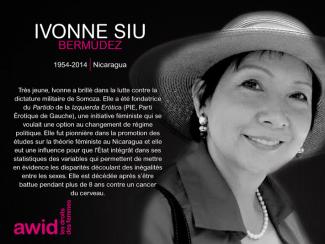
📅 Martes 12 de marzo
🕒 9:00 a. m. - 5:00 p. m. EST
🏢 Armenian Cultural Center, 630 2nd Ave. esquina con 35th St
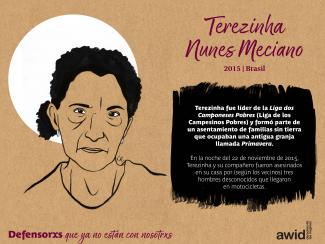
 |
Akosua Hanson es una artista activista radicada en Accra (Ghana). Su trabajo abarca la radio, televisión, medios impresos, teatro, cine, muestras de arte del cómic, instalaciones artísticas y la novela gráfica. El activismo de Akosua ha girado en torno al panafricanismo y el feminismo, con interés en la intersección del arte, la cultura pop y el activismo. Posee una maestría en Filosofía y Estudios Africanos con especialización en Género y Pensamiento Filosófico Africano. Akosua Hanson es la creadora de Moongirls, una serie de novelas gráficas que sigue las aventuras de cuatro superheroínas que luchan por un África libre de corrupción, neocolonialismo, fundamentalismos religiosos, cultura de la violación, homofobia y más. Trabaja como conductora radial en Y 107.9 FM en Ghana. |
En estas placas, Moongirl Wadjet hace el amor practicando BDSM con un demonio de dos géneros. De las cuatro Moongirls, Wadjet es la sanadora y filósofa, el vehículo del Oráculo. Su propósito es iniciar un proceso científico y espiritual, un experimento que denomina «Luz de plenilunio» y mediante el cual recorre un arco de tiempo vibracional por sus recuerdos, sensaciones, emociones, visiones e imaginación. Es una forma de viajar en el tiempo con vibraciones para descubrir lo que ella denomina «revelaciones-verdades».
En esa experiencia, algunas de las visiones difusas de Wadjet incluyen un apocalipsis inminente derivado de la destrucción ambiental a manos de lxs humanos y al servicio de un capitalismo voraz; un recuerdo de la infancia cuando estuvo hospitalizada luego de recibir un diagnóstico de salud mental, y la visión de una historia del origen de Moongirls en la que la figura bíblica de Noé como una anciana Moongirl negra que advierte sobre los peligros de la contaminación ambiental.
Más que una divertida excentricidad para explorar las sensaciones, el BDSM puede ser una forma de abordar el dolor y el trauma emocionales. Ha sido un medio de sanación sexual para mí, pues me ha permitido una forma radical de liberación. Cuando se inflige dolor físico en el cuerpo, se produce una depuración. Cuando se lo inflige con consentimiento, ese dolor extirpa el padecimiento emocional, casi como si lo «llamara» a retirarse. Los azotes sobre el cuerpo me permiten liberar emociones contenidas: ansiedad, depresión, una sensación de indefensión ante el estrés que me abruma ciertas veces.

Cuando practican BDSM como un camino de sanación, lxs amantes deben prestar mucha atención y hacerse responsables de su compañerx.. Porque si bien se puede haber consentido al principio, debemos estar atentxs a cualquier cambio que pudiera surgir en el proceso, sobre todo cuando las sensaciones aumentan. Me acerco al BDSM a sabiendas de que, para entregarme al dolor, el amor y la empatía tienen que ser la base del proceso y así puedo crear un espacio para el amor o abrirme a él
Los cuidados posteriores al dolor infligido completan el proceso. Pueden brindarse de forma muy simple como dando caricias, preguntando si tu compañerx necesita beber agua, viendo una película juntxs, compartiendo un abrazo o simplemente un porro. Pueden ser expresados en cualquier idioma amoroso que escojas. Ese espacio de contención, en el que se sabe que se han abierto las heridas, es necesario para completar el proceso de sanación. Debido a lo delicado que es desdibujar la frontera entre dolor y placer, ese espacio te enseña mucho sobre cómo poner en práctica la empatía y sostener verdaderamente a tu compañerx. Por eso para mí, el BDSM es una forma de trabajo de cuidados.
Luego de una experiencia sexual BDSM, me sobrevienen una claridad y una calma que me colocan en un espacio de enorme creatividad y me empoderan espiritualmente. Es casi mágico ver cómo el dolor se transforma en otra cosa en tiempo real. De manera similar, esa experiencia liberadora del BDSM en el plano personal le permite a Wadjet acceder a una suerte de clarividencia, sabiduría y claridad que la ayudan en sus responsabilidades como moongirl que lucha contra el patriarcado africano.
Moongirls nació cuando yo dirigía Drama Queens, una organización de artistas activistas jóvenes radicada en Ghana. Desde nuestros inicios en 2016, hemos empleado distintos medios artísticos como parte de nuestro activismo feminista, panafricanista y ambientalista. Usamos poesía, cuentos, teatro, cine y música para abordar cuestiones como la corrupción, el patriarcado, la degradación del medio ambiente y la homofobia.
Nuestras primeras producciones teatrales, «The Seamstress of St. Francis Street» (La costurera de la calle San Francisco) y «Until Someone Wakes Up» (Hasta que alguien despierte) hablan del problema de la cultura de la violación en nuestras comunidades. Otra obra, «Just Like Us» (Igual que nosotrxs), podría decirse que fue una de las primeras producciones teatrales de Ghana en tratar directamente el arraigadísimo problema de la homofobia en el país. En Queer Universities Ghana, nuestro taller de cine queer para realizadorxs africanxs, se han capacitado cineastas de Ghana, Nigeria, Sudáfrica y Uganda. Cintas que nacieron durante el taller, como «Baby Girl: An Intersex Story» (Una beba: Un relato intersex) de Selassie Djamey, se han proyectado en pantallas de distintos festivales cinematográficos. Por lo tanto, pasar al medio de la novela gráfica fue una evolución natural para nosotrxs
Hace como siete años, había comenzado a escribir una novela que nunca acabé acerca de la vida de cuatro mujeres. En 2018, Open Society Initiative for West Africa (OSIWA) ofreció la oportunidad de un financiamiento que nos permitió producir este proyecto y mi novela inconclusa se convirtió en Moongirls.
Hubo dos temporadas de Moongirls, cada una de seis capítulos. Entre lxs escritorxs y editorxs que participaron en la primera temporada estuvieron Suhaida Dramani, Tsiddi Can-Tamakloe, George Hanson y Wanlov the Kubolor. Yaba Armah, Nadia Ahidjo, y yo escribimos para la segunda temporada. Kissiwa, artista ghanesx, estuvo a cargo de la ilustración y la conceptualización de los personajes, mientras que AnimaxFYB Studio, un estudio de animación, diseño y efectos visuales de primer orden, se encarga de las ilustraciones.
Escribir Moongirls entre 2018 y 2022 ha sido una obra de amor para mí, incluso un trabajo liberador. Aspiro a explorar intensamente formas y estilos: he incursionado en convertir otras formas de composición, como los cuentos y la poesía, al formato de la novela gráfica. Al conjugar ilustración y texto, como hacen las novelas gráficas, Moongirls busca abordar los grandes temas y honrar a lxs activistas de la vida real. La decisión de centrarme en superheroínas queer, lo cual es muy raro de ver en este canon, cobró un significado mucho mayor cuando en 2021 el contexto en Ghana comenzó a tornarse peligroso.
El año pasado hubo un abrupto incremento de la violencia contra la comunidad LGBT+ ghanesa que se originó con el cierre de un centro comunitario LGBT+. A ello le siguieron arrestos y detenciones arbitrarias de personas sospechosas de pertenecer al espectro queer, así como de otras acusadas de propiciar una «agenda LGBT». Como colofón, en el Parlamento ghanés se presentó un proyecto de ley anti-LGBT denominado «Los derechos sexuales humanos apropiados y los valores de la familia ghanesa». Este proyecto probablemente sea el más severo jamás redactado en la región, y sigue a intentos similares en países como Nigeria, Uganda y Kenia.
Recuerdo muy vívidamente la primera vez que leí ese proyecto de ley.
Fue un viernes por la noche, momento que en general me reservo para descansar o ir de fiesta luego de una larga semana de trabajo. Por puro azar, el texto me llegó a través de un grupo de WhatsApp, como una filtración. Mientras lo leía, una profunda sensación de temor y alarma me aguó la noche de descanso del viernes. En el proyecto se proponía castigar todo actoo de incidencia LGBT+ con una sentencia de entre cinco y diez años de prisión, y encarcelar a toda persona que se identificara como LGBT+, salvo que se «retractara» y aceptara someterse a una terapia de conversión. En el borrador del proyecto se penalizaba hasta a las personas asexuales. El proyecto atacaba todas las libertades fundamentales: libertad de pensamiento, de ser, de tener tu propia verdad y elegir tu forma de vida en función de ella. Incluso iba en contra del arte y las redes sociales. De haberse aprobado, Moongirls se hubiera convertido en literatura prohibida. Lo que el proyecto se proponía hacer era tan malicioso y tenía tal alcance que me postró en una depresión al comprobar la intensidad de odio con que había sido redactado.
Al repasar mi línea de tiempo en Twitter aquella noche, vi reflejado el terror que sentía en mi interior. Mi línea de tiempo transmitía en vivo las emociones de las personas que reaccionaban en tiempo real a lo que estaban leyendo, pasando de la incredulidad al terror, seguido por una profunda decepción y tristeza cuando tomamos conciencia de cuán lejos quería llegar con ese proyecto de ley. Algunxs decían en Twitter que estaban dispuestxs a dar vuelta la página y abandonar el país. Luego, al mejor estilo ghanés, la tristeza y el temor se convirtieron en humor. Del humor surgió el ánimo para redoblar la lucha.
Entonces, el trabajo continúa. Creé Moongirls para ofrecer una forma alternativa de educación, para brindar conocimiento allí donde el patriarcado violento lo suprimió, y para crear visibilidad allí donde habían borrado a la comunidad LGBT+. También es importante que la práctica BDSM africana tenga esta plataforma de representación dado que buena parte de lo que se ve del BDSM está encarnado por personas blancas. El placer sexual, a través del BDSM u otras prácticas, así como el amor no heterosexual, trascienden razas y continentes porque el placer sexual y sus experiencias diversas son tan antiguos como el tiempo.

Esta edición en alianza con Kohl: una publicación para Body and Gender Research analizará soluciones, propuestas y realidades feministas para transformar nuestro mundo actual, nuestros cuerpos y nuestras sexualidades.

نصدر النسخة هذه من المجلة بالشراكة مع «كحل: مجلة لأبحاث الجسد والجندر»، وسنستكشف عبرها الحلول والاقتراحات وأنواع الواقع النسوية لتغيير عالمنا الحالي وكذلك أجسادنا وجنسانياتنا.
COZINHA OCUPAÇÃO 9 DE JULHO

À travers des événements en présentiel, des lives sur nos réseaux sociaux, un stand d'exposition et bien plus encore, nous visons à nous rassembler, amplifier et soutenir les voix et la participation de nos membres et allié.e.s.
Ensemble, nous allons Récuperer Notre Pouvoir Féministe et centrer les alternatives et visions féministes autour d'économies basées sur les soins des personnes et de la planète.
Suivez-nous sur les réseaux sociaux pour plus de détails sur la façon de participer ! Participez aux conversations en utilisant les hashtags #AWIDatCSW68 et #RécupererNotrePouvoirFéministe
Instagram | Facebook | LinkedIn | X (Twitter)
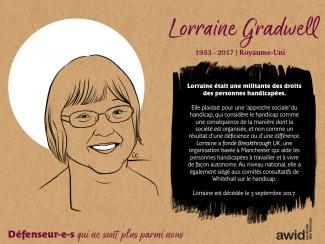
Gracias, Ángela y Pilar.

 |
Yannia Sofía Garzón Valencia: Soy Mujernegra y tejedora comunitaria. Vivo en Santander de Quilichao, Cauca, Colombia. Me interesan los procesos creativos que producen organización para sostener la vida colectiva. Me gusta conversar y cocinar, investigar y analizar, sembrar y aprender de plantas, leer y jugar. Actualmente coordino el Observatorio sobre violencia basada en género contra personas Afrodescendientes en Colombia. (@VigiaAfro). |


Como pocas veces ocurre, había una amplia área verde para jugar y nos sentamos en unos banquitos de madera bajo un árbol de sauco. Por fin experimentábamos la sensación de otras formas del amor – estar por el gusto de estar y el placer de escucharnos. Estas conversas para mí hacen parte de las más recientes expresiones de amor que la vida me ha permitido. Formas que no sabía que eran posibles, que se quedan afuera de un taller o de un espacio militante, de un salón de clases o de una oficina de trabajo. Pasamos la tarde entre amigas donde el color de piel de las tres no fuese un tema para hacernos las ciegas y sí una experiencia para intimar sobre los parecidos y diferencias entre nuestras experiencias de infancia y juventud.
Hasta hoy me resultan nutritivas y resignificadoras aquellas charlas que se eximen de alguna tarea pendiente del movimiento negro en Colombia con la cercanía tejida del encuentro, de reconocernos, y en ese reconocernos, de identificar las particularidades que tiene liberarnos. Y de que no hay un solo camino sino muchos caminos de liberación – caminos que habitamos cada vez que dijimos no y nos rebelamos, y que lejos de incomodarnos, nos encontramos en nuestra autenticidad hecha de debilidad y fortaleza, que en lugar de separarnos, nos junta.
Nuestro propósito para hacer esa hermosa tarde fue estar. Ser conscientes de estar entre nosotras. Transitamos para que los recuerdos que quedaran sean aquellos que imaginamos por decididos, sean nuestros y no los que el miedo filtra, acomoda y permite. Recordamos fragmentos exactos de programas; cantamos coros de canciones y a lxs artistas que nos educaron en qué iba eso de amar bien, odiar bien, insultar como la mejor villana, sufrir como la mejor protagonista. Nos contamos travesuras en el colegio, lo que nos quedaba dentro del inconsciente después de la exposición a tantas formas mediáticas de decir lo mismo: durante la época del colegio, desde las maestras y las religiosas, la sobreexposición se nos hace a las mujeres para que nos identifiquemos en la aspiración de cenicienta, la conducción y apropiación para nuestras vidas del drama de la muchacha empobrecida y disminuida que precisa completar el valor de ella misma en el acto redentor de nuestra condición, y del que solo es capaz la mirada de un hombre, que como mínimo ha de ser blanco, merecedor de nuestra entrepierna – su supuesta “máxima aspiración” – y la “perfecta realización de nuestros sueños” la que debe ser nuestra.
Aquella tarde éramos tres, y cada una de nosotras criadas en diferentes lugares del país, pero era fascinante coincidir al repetir de memoria frases y situaciones de canciones y novelas, que a veces – nos dimos cuenta hablando, conociéndonos – mantuvieron algunos códigos, símbolos que se reprodujeron con algunas variaciones en nuestras casas, en nuestras relaciones primeras dentro del barrio y en el colegio. Educadas en y para el “drama” – ¿así se llama al género taquillero? – que llega a ser más drama y mayor merecimiento, el tema de “cómo y en qué situaciones es válido y legítimo sufrir” se transforma también – y esto es importante – en cómo debe ser la actitud, cómo debe verse y cómo debe hacer y ser quien sufre. Por tanto, algunas conseguimos sacarnos de nosotras mismas, y por todo significado de amor “aprendimos” que aquel que nos toca a nosotras, solo lo podíamos aprender adultas, rompiendo las ilusiones, aceptando el pecado natural, el conocimiento de la producción industrial de una virgen maría a la que no queremos parecernos, a la que no nos cabe dentro de lo que entendemos, y los desengaños que esta alineación nos reserva.
Luego de cantar, pasamos por las exploraciones sexuales tempranas. Nunca pensé que la mayoría de personas pasamos por ahí antes de los nueve años, y que aún en la adultez, hoy esas experiencias, esos recuerdos, son carga pesada y que incluso hoy, en miles de lugares, millones de niñas y niños son cercenados en su inocencia por la ausencia de confianza y la ignorancia que les ofrecemos para que reconozcan sus cuerpos. Culpar la curiosidad, valiosa fórmula de control. Retomamos conversas breves que habíamos tenido derivadas de nuestro rehacernos la historia de nuestra vida desde nuestro ser maldecido negro y por nosotras renacido. Recordamos que muchas de nuestras tías y primas fueron saliendo de sus casas, de ombligo, de su arraigo, para buscar un futuro afuera, en otro lugar.

El futuro exige el precio de reacomodar las relaciones que nos han hecho desde la infancia y colocarlas en un cuarto de olvido, fundantes, pero no relevantes para avanzar. Progresar fue para nosotras memorizar qué nos hacemos a nosotras mismas con las oportunidades que encontramos en otro lugar, que el otro lugar y no nosotras es dónde habita la oportunidad, que estamos disponibles, que hay que estar afuera. Sin embargo, para muchas de nuestras tías y primas, a cambio de la oportunidad que pocas veces llegaba de ser matriculadas y mantenidas en el colegio nocturno o un sabático por su trabajo doméstico, lo que sí llegaba con puntualidad de factura de servicio público, era la de convertirse en la primera experiencia sexual de parientes que vivían en ese futuro por el que ellas mismas y otrxs antes de ellas ya habían pagado y cuyo precio habían olvidado. Ese legado no lo seguiremos.
"Aprendió que el cuidado del vientre es un asunto de mantener sus tejidos en calor, de evitar los fríos que entran por la molleja encima de la cabeza, por los pies, por las orejas, para que no doliera especialmente en tiempos en que la luna baja, que para eso hay que cuidar lo que se come y no se come, cómo se viste y cómo se camina, que esto tiene que ver en todo momento con la salud de las niñas."
En Colombia y en América Latina se implementó con mucho éxito un manual de conducta llamado “La Urbanidad de Carreño.” Hasta la década de los 90’s y tanto en colegios públicos como privados fue de obligatoria lectura. Mi mamá que fue recogida por monjas carmelitas, lo conocía de pe a pa: el manual efectivamente condicionaba la mirada sobre los cuerpos. La primera vez que lo leí tuve que parar varias veces para sobarme el estómago que me dolía de tanto reír. Tiene instrucciones tan ridículas como la de ducharse con los ojos cerrados y apagar la luz al momento de ponerse la ropa de dormir. Los capítulos hacían referencia a cómo estar en la casa, en la calle, en una cena, en una comida – en otras palabras, las normas del buen gusto y de la etiqueta. El deber ser de la ciudadanía de bien, la civilidad que permitía distanciarse de los valores de la vida en el campo. El mismo manual indicaba que saludar de grito a alguna persona conocida que se encontrara al otro lado de la calle era indecoroso; la buena educación es cruzar la calle, así como los hombres deben quitarse sus abrigos, para ponerlos en los charcos de agua toda vez que fueran acompañados de mujeres que no debían mojarse el calzado. Pensaba en los saludos de un lado al otro lado del río, y en el calor que hace en los lugares donde hacemos la vida que no nos pide abrigo.
Este señor Carreño se contrasta grandemente con el abuelo de otra mujer mayora oriunda de Turbo. Ella compartió una vez que su abuelo era un sabio, que de él aprendió a partiar, a cuidarse el cuerpo. Aprendió que el cuidado del vientre es un asunto de mantener sus tejidos en calor, de evitar los fríos que entran por la molleja encima de la cabeza, por los pies, por las orejas, para que no doliera especialmente en tiempos en que la luna baja, que para eso hay que cuidar lo que se come y no se come, cómo se viste y cómo se camina, que esto tiene que ver en todo momento con la salud de las niñas. La mayora dice que de su abuelo devoto aprendió que los cólicos se hicieron más comunes cuando las casas dejaron de tener piso de tierra y/o madera. Cuando llegó el concreto y la baldosa, cuando el material de la casa permitió que el frio entrara por los pies, con ellos aumentó la tensión en el tejido de los vientres.
Sorprendidas de nuevo. La distancia entre la consciencia de la vida de Don Carreño y la del sabio abuelo, es la misma distancia entre lo que se dicta para el comportamiento adecuado, y cómo se ven incapacitados el impulso y los sentidos, incluso el sentido común que gusta de la salud. En ese momento podía entender otra de las tantas maneras en cómo el cemento obstruye nuestra forma de respirar de la tierra, y de nosotras como parte de ella. No había dimensionado que hubo, y aún hay, arquitecturas y materiales pensados para el cuido de nuestros cuerpos. En Colombia como en muchos otros países, el material del que está hecha la vivienda hace parte de los indicadores del índice de pobreza multidimensional: la vivienda que está construida en cemento aleja al hogar de ser leído como pobre, y así podríamos seguir rastreando el desaliento con el que el progreso nos arrastra en abandonar la relación de nuestro entorno con nuestro cuerpo. El buen gusto y la civilidad nos encamina hacia afuera: avanzar – mienten – está allá afuera.
Nos molestó un poco caer en cuenta juntas de cómo nuestras mamás o nuestros papás no nos dijeron palabra alguna de la menstruación, salvo cuando la mancha marrón ya había embadurnado los calzones. Ni nos alejaron de la vergüenza que se supone era apenas natural sentir una vez estuviera allí, acompañada de los retortijones en el vientre muchas veces acallados por las labores de faena, que se llaman quistes, miomas, hematomas – asesinaron y olvidaron a nuestras abuelas que habían averiguado y olvidaron los tratamientos para sanarlos. Que su aliento, enfriado cada vez más por ese afuera, heló la familiaridad y en lugar de calentar nuestros vientres, sentenció consejos parecidos más a las advertencias sobre lo único que les importa a los hombres. Generalizando a todos los hombres – legitimando el rol saqueador del pene, y que la única opción para esos cuerpos con pene es tomar aquello que tenemos entre las piernas. La inmutable e instalada naturalización de las múltiples variaciones de esta verdad. Y generalizar para todas las mujeres que debemos preservarlo para uno, el que lo meta primero, el que dé algo a cambio, y que somos mujeres únicamente por eso, por aspirar a/y dejarlo meter. De niña exploré penesitos y clitorisitos, y entre juegos la pregunta al oído que en esas ocasiones hacía cuando era entre mujeres fue: ¿esta vez a quién le toca hacer de hombre y a quién hacer de mujer? Por respuesta: principios de orgasmitos independientemente de con quién. Supongo que ocurre parecido entre los cuerpos de los hombres también.
"Podía entender otra de las tantas maneras en cómo el cemento obstruye nuestra forma de respirar de la tierra, y de nosotras como parte de ella. No había dimensionado que hubo, y aún hay, arquitecturas y materiales pensados para el cuido de nuestros cuerpos."
Experiencias y exploraciones de nuestras tías, primas y conocidas se volcaron hacia el cuerpo y su desnudez como tabú. Evadieron expresarla, enunciarla, hasta el punto de encubrirla, asignando nombres para sus funciones, de excretar, de expulsar, de procrear, y para nosotras de recibir. A propósito, compartí una reflexión que salió de escuchar una mayora en un taller; ella decía que, en el tiempo de vivir con su abuela, la recordaba durmiendo con un ojo abierto y otro cerrado y con una escopeta al lado del colchón. Al menor ruido en la noche, la accionaba sin chistar, situación no poco habitual en algunos territorios del pacífico colombiano donde hay un comportamiento nocivo y normalizado; y es que hombres casados y solteros que sienten gusto por una joven, se le meten en la habitación de noche – “gateada” entendemos, “gateada” decimos. El asunto de hacerle justicia a la joven, era un cálculo de riesgo: si las autoridades de la casa se daban cuenta y había o no abuso, podían herirlo y hasta matarlo.
Una práctica de justicia propia y directa, que tiene consecuencias que hasta hoy no han acabado con el gateo. En ese mismo taller – seguía compartiendo con mis hermanas – otras participantes dijeron que ni ellas ni sus mamás dejaban a sus hijas con sus padres a la hora del baño, a menos que llevaran ropa interior. En esas recordé la voz de mi papá diciéndome cuando yo tenía siete años, su mamá nunca ha dejado que yo la bañe. Les compartí esto y, todo lo contrario, una de ellas nos compartió que en cambio su papá la bañaba desnudita en el patio de su casa de infancia hasta que tuvo siete años, y que luego hasta los nueve lo hacía su hermano mayor. Ella nunca sintió un dejo de mirada extraña por parte de ellos; para ellos, decía, era parte de las tareas del cuidado con la consentida. Recuerda ser vista como lo que era: una niña hija, una niña hermana peleada con el agua.
De nuevo la infancia, ayer y hoy. Nos sorprendió escucharla, me consoló saberlo. Ya había sido diferente en otros lugares y el padre de mi hija hasta casi los dos años la bañó en la tina. Incluso antes de que cumpliera dos años le pegaba un poco en las nalgas hacia arriba, según él, para hacerlas más grandes. Acá se pueden conversar sobre otras dimensiones de cómo hacemos los cuerpos, pero es para otro cuento. Para mí, se trataba de una tarea de cuidado entre tantas del reparto que acordamos antes de que ella naciera. Y la decisión de no ver en cada hombre un violador al acecho, no significa que no lo sean, sino que también pueden dejar de serlo. También hay hombres y cuerpos de hombres que por crianza nunca lo han sido.
También pasa ahora. Le pasó a nuestra amiga y a mi hija. Me quedé pensando: ¿cómo puede ser que algunas mujeres pudieran formar una pareja en la que no les pueden dejar el cuidado de sus hijas? Estoy segura que mi mamá amó a mi papá. Y aunque pocas veces hablamos sobre la mujer que fue antes de ser mi mamá, sé que sus experiencias de abuso no se comparan en brutalidad y permisividad como las de ahora y sin embargo es una decisión – de muchas mujeres en muchos lugares. Lo que me lleva a otras preguntas: ¿Qué tan frecuente, tan reiterados los casos de abuso que en nuestra familia extensa fueron, que las madres prohibieron perceptible o imperceptiblemente a sus parejas bañar a sus hijas?, ¿Tiene que ver con toda esa sobreexposición mediática a la que somos expuestxs casi desde el nacer?, ¿Qué hace posible el desdibujamiento del lazo familiar y lo deja solo en un lazo de satisfacción corporal?, ¿Es la proximidad a los valores de la urbanidad que con tanto celo cuida de las correctas formas de los cuerpos femeninos como objetos de deseo, e impulsa a los cuerpos masculinos a actuar como poseedores y conquistadores, cumpliendo el mandato que debe ser imitado de la representación a la que mediáticamente les exponen para sentirse tranquilos en su identidad?, ¿Es el cemento y otros códigos como el de la urbanidad de Carreño el que lo soporta?, ¿El olvido de las relaciones que establecemos en función de obtener progreso, lo que lo provoca, el insistente hacer para afuera?, ¿Qué pasa con los aprendizajes de nuestra época, de quienes a escondidas o no, tuvimos exploración sexual infantil?, ¿Anulados por la culpa?, ¿Germen de la desconfianza y la vergüenza hacia la desnudez?, ¿Germen de la desconfianza y la vergüenza hacia estar adentro de si mismx? ¿No son estos aprendizajes, posibilidades para confiar en abordar la desnudez de los cuerpos dentro del respeto a sí mismx y otrxs? Estas preguntas nacen porque hay espacios de confianza, donde el miedo a decir cómo se piensa y siente está espantado por el propósito de acompañarnos. Imagino cuantas hay en tantos rincones de este planeta y estoy muy segura que no son preguntas nuevas, que hay mensajes repetidos en ellas y que nos encontramos viviendo sus respuestas.


Esta edición en alianza con Kohl: una publicación para Body and Gender Research analizará soluciones, propuestas y realidades feministas para transformar nuestro mundo actual, nuestros cuerpos y nuestras sexualidades.

نصدر النسخة هذه من المجلة بالشراكة مع «كحل: مجلة لأبحاث الجسد والجندر»، وسنستكشف عبرها الحلول والاقتراحات وأنواع الواقع النسوية لتغيير عالمنا الحالي وكذلك أجسادنا وجنسانياتنا.
Es un centro comunitario, donde unx puede tomar cursos y capacitarse en actividades creativas que generan ingresos como peluquería local, cocina y creación artística. Lxs niñxs también pueden disfrutar de actividades culturales y educativas.
El MSTC no trabaja solo. Colabora con instituciones y colectivos de arte para producir experiencias culturales, deportivas y educativas, junto con el acceso crítico a la atención médica. Desde su inicio, este proyecto participativo ha sido liderado y llevado a cabo principalmente por mujeres, bajo el liderazgo de la activista afro-brasileña Carmen Silva, quien alguna vez fue una persona sin hogar.